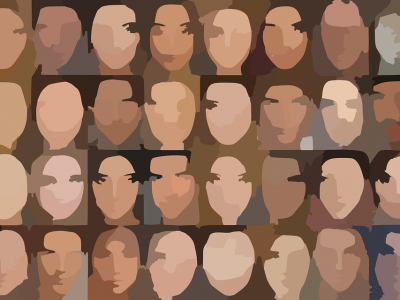Most of this report was researched, written, and edited by Lisa Ferguson, Weiping Li, Alex Laverty, Chan Myae Khine, Ellery Roberts Biddle, and Sarah Myers.
Global Voices Advocacy's Netizen Report offers an international snapshot of challenges, victories, and emerging trends in Internet rights around the world. This week we highlight a range of impending regulatory changes in Asia, beginning with a new effort by the Indian government to monitor citizens over VoIP services such as Skype.
National Policy
The Indian government may ask firms offering Internet telephony, including Skype, to set up servers in-country to facilitate tracking by law enforcement and security agencies. It also will ask Internet Service Providers to segregate IP addresses state-by-state, a move that will enable the government to block sites and services (including VoIP) at the state level.
Singapore’s Media Development Authority has announced new media regulations that will apply to both traditional and online news organizations. The regulations will require news websites to obtain an individual license for operation. Sites will continue to face restrictions on publishing content that “advocates” homosexuality or “endorses” religious or racial hatred, both guidelines that appear in Singapore's Internet Code of Practice.
Netizens in South Korea are voicing concern about the Youth Sex Protection Law which enables law enforcement authorities to arrest users for downloading child pornography or any material that references sex with a minor. Enacted in March of 2013, the law has led to the detentions of nearly 2,000 users, only 106 of whom were proven to have made or sold child pornography.
Privacy
Security researchers reported that Skype had been exposing users’ IP addresses to other Skype users indiscriminately. Skype, owned by Microsoft, attempted to resolve the problem earlier this month in a new version of the program (still in beta) which allows users to change their settings and restrict the ability to view user IP addresses to an individual’s Skype contacts only. Users can find this privacy option under Skype->Options->Connections.
Censorship
Thailand’s Minister of Information and Communications Technology stated that websites defaming the Prime Minister will be soon be subject to censorship by government authorities. He encouraged citizens to report offensive content. The announcement came in the wake of a lawsuit filed by the government against cartoonist Chai Rachawat for posting an image on Facebook that criticized Prime Minister Yingluck Shinawatra.
A Japanese mobile chat app called Line is capable of filtering politically sensitive content using a keyword search function. The app searches for “bad words” and cross-checks them with a directory of sensitive terms. Users who type bad words receive an error message asking them to adjust and re-send the message. The word filter is not currently activated but could be turned on at any time, according to Tech in Asia.
Thuggery
Turkish-Armenian writer Sevan Nisanyan has been sentenced by a Turkish court to 58 weeks in prison for “insulting the religious beliefs held by a section of the society.” Nisanyan wrote a blog post titled “[We] need to fight hate speech” that claimed “making fun of an Arab leader who claimed he contacted Allah hundreds of years ago and received political, financial and sexual benefits is not hate speech.”
Copyright
The Taiwan Intellectual Property Office has proposed amendments to the Copyright Act that would enable the government to block sites hosting content that infringes copyright. The proposal has been compared to the Stop Online Piracy Act (SOPA), which failed in the US Congress in the face of opposition from civil society and companies alike. Netizens in Taiwan are concerned that the amendment would lead to censorship of a wide range of legal content in the country.
Sovereigns of Cyberspace
Facebook will join Google, Microsoft and Yahoo! as the sixth company to join the Global Network Initiative, an coalition of NGOs, companies and academics who work together to advise global online service providers on how to protect their users’ rights to free expression and privacy when faced with requests from foreign governments to divulge users’ private data or remove controversial content.
Netizen Activism
The first Myanmar Internet Freedom Forum will be held in Yangon on June 1-2 and hosted by the Myanmar ICT Development Organization. The event will likely spark interest among Internet and human rights advocates who have documented the country's poor human rights record and low Internet penetration levels.
Cool Things
Refugees United and Ericsson are hosting a series of hackathons in Cairo, Nairobi and San Francisco to develop new mobile solutions to help refugees locate missing family members.
Social branding agency Resonance created the infographic, “What Happens in a China Internet Minute.”
The English language version of North Korea's government radio station, Voice of Korea, is now available online.
Publications and Studies
-
For Their Eyes Only: The Commercialization of Digital Spying — Citizen Lab
- Teens, Social Media, and Privacy — Pew Internet & American Life Project
Subscribe to the Netizen Report by email
For upcoming events related to the future of citizen rights in the digital age, see the Global Voices Events Calendar.





3 comments